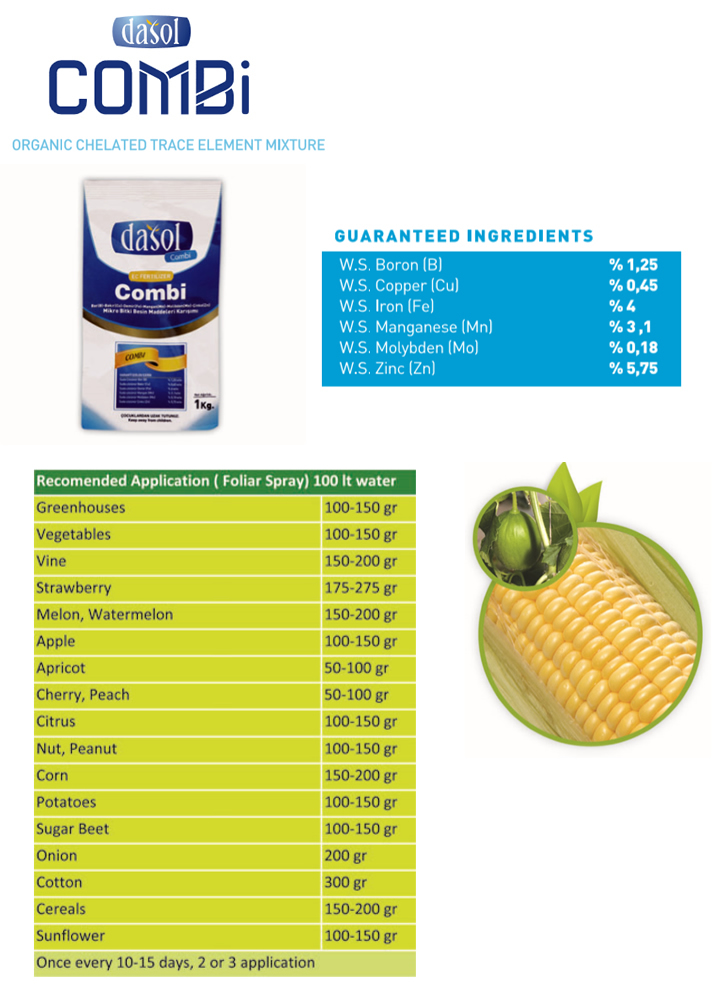 Dasol Combi
Dasol Combi, plants need micro elements along with macro elements throughout the life cycle. In some cases (extreme hot and cold stress, drought, soil buffering, etc…), the intake of microbes is slow, in such cases the plant micro element reinforcement is required for the Dasol combi ideal.
Dasol Combi, a perfect mixture of micro elements, Dasol combi eliminates the trace element deficiency in all kinds of plants.
Dasol Combi eliminates the micro-element deficiency by accelerating the intake of the special organic chelating agent and trace elements in the soil, both from the soil and from the soil.
Dasol Combi, traces of fruit trees in the case of scarcity in the fruit trees flower blooms – formation of poor-quality fruit – cold and cold stress prevents the arrival of fruit.
Dasol Combi is a product that can be applied to the soil from the soil and provides the highest quality flower and fruit structure.
Trace elements in Dasol Combi:
IRON: Enables energy transfer for growth and chlorophyll synthesis is absolutely necessary for Clofilin conversion, is effective in the formation of chloroplast proteins, acts as an enzyme and coenzymes, is necessary for electron transfer of enzymes.
ZINC: It is necessary for the Auxin hormone. Vegetative growth is inhibited, and water intake of the plant is slow. Carbohydrates are involved the transport and transport of sugar. It is necessary for hormonal activities and is the structural element of Auxin.
BOR: It is effective in the synthesis of the cytokine hormone and in the formation of new cells, increasing the permeability of the cell membrane. Calcium is involved in the transport and placement of calcium. Nucleus formation, fruit stalking, pollen health and fertilization are necessary.
MOLYBDEN: Regulates generative and vegetative development by regulating the reactions in the plants. Enzyme activity prevents the accumulation of nitrate by reducing the ammonia of the nitrate. N works in the fixation. It is effective on phosphorus metabolism. In its absence, organic phosphorus transforms into inorganic phosphorus.
MANGANESE: Mango helps to form chlorophyll in plants. The plant acts as a catalyst during enzymatic and physiological events. Carbohydrates are involved in water and carbon dioxide degradation and respiratory events. The plant most sensitive to manganese deficiency is chloroplast. In manganese deficiency, the formation of chloroplasts is disturbed, and the cells shrink.
Transformation in the plant is stopped by amino acids. Sugar level of flesh and fruity remains low. So, the fruit does not taste, and the fruit remains small.
COPPER: Copper is required for chlorophyll formation. It is a catalyst for respiration. The mechanisms of carbon dioxide uptake are there for a very effective element in photosynthesis. Generative development in plants is more effected when the content of copper falls below normal in the plant. Deformations, discoloration, lack of flowers, no occurrence of flowers can be observed in flowers. There is a decrease in the formation of amino acids and enzymes.
